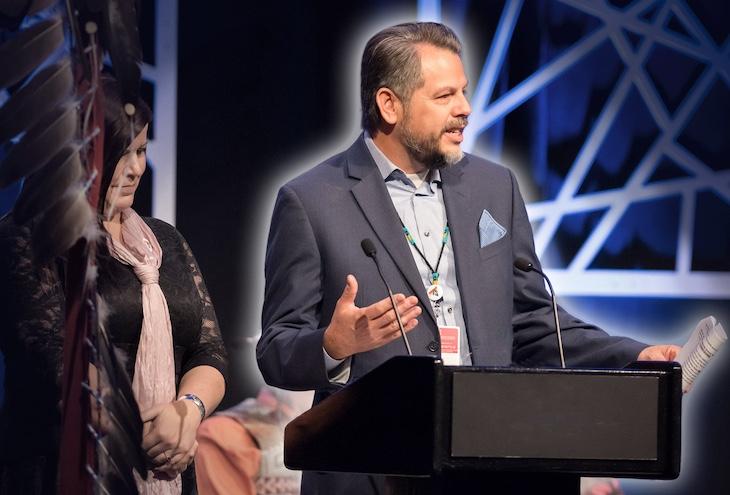Solid presentation skills are important in today's workplace. Not only do they demonstrate your ability to communicate effectively, but they also enhance confidence and engagement with the audience. Mastering the art of presenting can lead to improved professional relationships, increased influence, and even career advancement. Whether you’re new to your field or a seasoned professional, it’s always smart to sharpen your presentation skills. Here are a few key elements of a successful presentation to keep in mind:
Connect with the Audience
Your listeners will feel as though you’re addressing them personally by making eye contact. The best way to do this is to locate someone who seems engaged, actively listening, and interested in your talk. Achieve eye contact with them early in the presentation, and as you settle in and feel calmer, gradually look across the audience and connect with others. Return your gaze to the original person throughout the presentation to regain your sense of calm. And don’t forget to smile. Appearing friendly and approachable exudes confidence and helps your listeners relate to you and your topic.
Be Emphatic
Good posture and body language are important elements of an effective presentation. Stand tall and try to appear relaxed. Use your hands, arms, and facial expressions to emphasize key points. Avoid crossing your arms, holding your hands behind your back, or putting hands in your pockets during a presentation as those hand positions close you off and make you seem less approachable. Don’t be afraid to flash a friendly smile throughout your presentation to signal that you enjoy the topic, are confident in your knowledge, and are happy to be spending time sharing information with your audience.
Stay Focused
The use of technology in presentations is often unavoidable. From laptops and SMART Boards to audio playlists and laser pointers, there can be a lot to keep track of. To avoid distractions for both you and the audience, try to limit the number of aids — and hold them only when you’re currently using them. When preparing your presentation, consider how much value a particular type of technology adds. If you can get the message across just as effectively without it, do so, especially if you’re running the show solo. With fewer gadgets to manage and possibly (probably) troubleshoot throughout your talk, the more focused and present you’ll be.
Start strong. End strong.
Just like a good story, you want to grab your audience’s attention right away. Studies show that if you can capture someone’s interest quickly, they’ll likely stick with you. Connect with your listeners by opening with a shocking statement, telling a joke, asking them to imagine a scenario, or showing a compelling video. But don’t stop there. The trick is to keep the momentum going. A weak ending will leave the audience uninspired, so try closing on a note that will motivate them or impart positive feelings. For example, present them with a challenge or end with a memorable quote or a personal story. And don't forget to thank them for their attendance and attention.
Practice, Practice, Practice
There’s truth to the adage “practice makes perfect.” If you take the time to prepare — and actually run through the whole presentation a few times — you will feel more relaxed and confident. Ask friends or colleagues to serve as a mock audience and provide feedback. Pay attention to flow, pronunciation (some words can get tricky to say aloud when grouped together), and body language. You’ll thank yourself later for putting in the prep time.
Even the most seasoned presenter must work to ensure their presentation is effective and interesting. Take time to determine how you’ll garner the audience’s attention and what tools you’ll employ to keep it. Once you understand the tools that best suit you, continue refining your presentation skills. Soon you’ll be giving presentations that engage everyone — including you.
 AISES FACES
AISES FACES
The AISES team is made up of passionate people striving to provide Turtle Island with Indigenous STEM knowledge, resources, programming, and events. Every individual contributes their skills and expertise to support the advancement of Indigenous students and professionals in STEM studies and careers. Meet one valuable team player who is focused on supporting members, like you.
Dr. Terry Chavis (Lumbee), Senior Program Officer for Curriculum and Instruction
What is your role at AISES and how does it impact our members?
As the senior program officer in Curriculum and Instruction I work alongside professionals to provide frameworks on incorporating Indigenous knowledges into their curriculum or practice.
As an experienced presenter, what are the top three tips you would share with professionals who may fear giving presentations or want to strengthen their presentation skills?
1. Be authentic! They are there to see you! Participants can easily assess if the presenter is reading from a script or is too rigid.
2. Speak with passion, and the rest will come with ease. Your audience wants to be as excited about the topic as you are! You agreed to provide your expertise. Is your area of expertise not also your passion?
3. Move around if you can. This will help with nervousness and prevent stiffness during your presentation.
Tell us more about the Adobe CLOUDS leadership program? How can readers get involved?
We hope the participants will immerse themselves in the program to learn more about Indigenous Leadership skills and how to incorporate them into their practice. This opportunity will allow college students to complete the Adobe Learn Certifications, attend monthly reflection-activity webinars, and attend the CLOUDS gathering in July 2025. Students will form groups at the gathering and produce a product for a competition. The top five teams will receive an all-expense paid trip to the AISES National Conference to compete. We are accepting applicants on a rolling basis. Those interested can find out more and apply here: AISES CLOUDS Application.
Is there anything else you’d like to share?
Many Indigenous cultures are rooted in storytelling. Understanding that presenting is a form of storytelling can help you with preparing for the task at hand. As the late Dr. Maya Angelou said, "... you carry your people with you in that room." Carry your people (family, friends, and ancestors) with you into the presentation and you will see how proud you make them.














